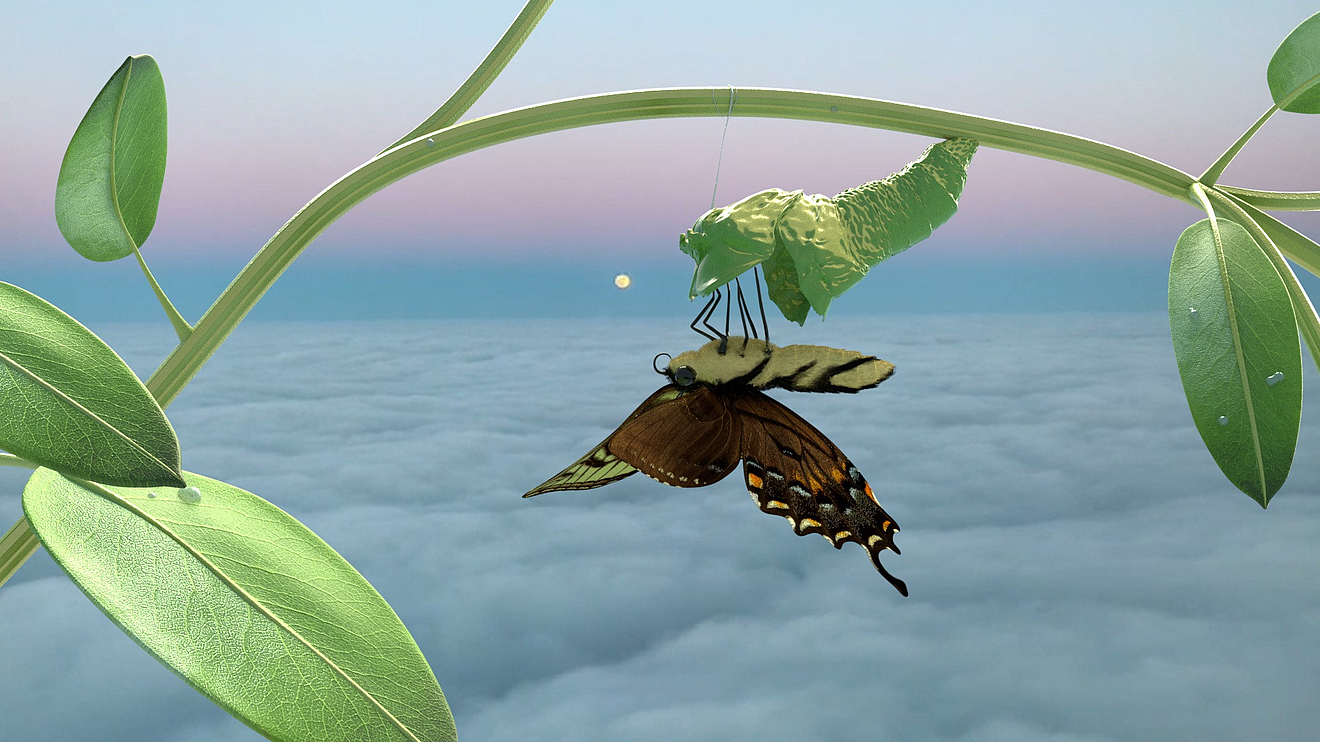With this exhibition, Museum Schloss Moyland is taking up what is undoubtedly the most existential debate of our time: in view of the climate crisis, the international network "The Institute of Queer Ecology" (IQECO) has been invited to enter into a dialog with Joseph Beuys' most relevant works on ecology and the environment.
Both Beuys and IQECO regard art as a realm for intellectual exploration, serving as a platform to envision progressive futures and confront the challenges posed by climate change. Beuys, a co-founder of the German "Green Party" in 1979, stood as an advocate for nature and climate protection from its earliest moments. Half a century later, IQECO disrupts established norms with revolutionary and inspiring approaches toward a more equitable and sustainable ecology, based on queer theory.
The IQECO advocates for the elimination of judgmental and binary thinking, promoting the acceptance of a more diversified reality of life. Outdated dualities such as natural versus unnatural, or human versus non-human, undergo deconstruction. Their works make the pervasive queerness in nature tangible, for example through plants that change their gender during their lifespan.
In addition to historically significant works such as "7000 Oaks" (1982) or "Difesa della Natura" (1982) by Joseph Beuys, numerous new productions by IQECO await you in the castle, on the castle facade and in the park. These attest to IQECO's commitment to an inclusive, tolerant, mindful and diverse ecology, one that is not based on exclusion and simplification, but on inclusion and complexity.
Curated by Judith Waldmann
Gallery
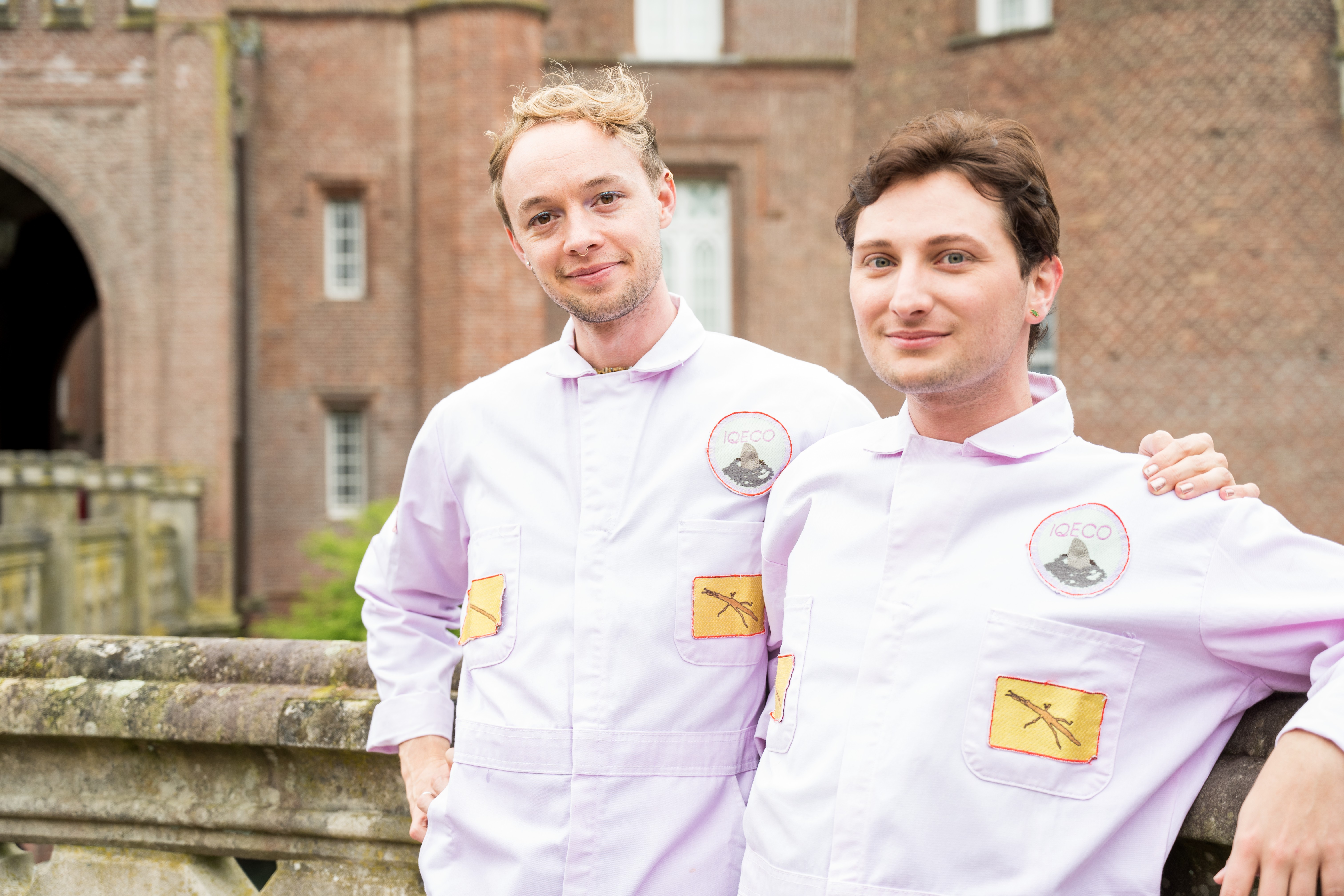
Nicolas Baird und Lee Pivnik (The Institute of Queer Ecology) Foto: Stiftung Museum Schloss Moyland/Paula Thiel

The Institute of Queer Ecology Form Follows Foreplay, 2019 Courtesy the Institute of Queer Ecology
Gunter Schmidt Pink-Panther-Protestaktion zu Joseph Beuys' 7000 Eichen auf der documenta 7, 1982 Courtesy Gunter Schmidt
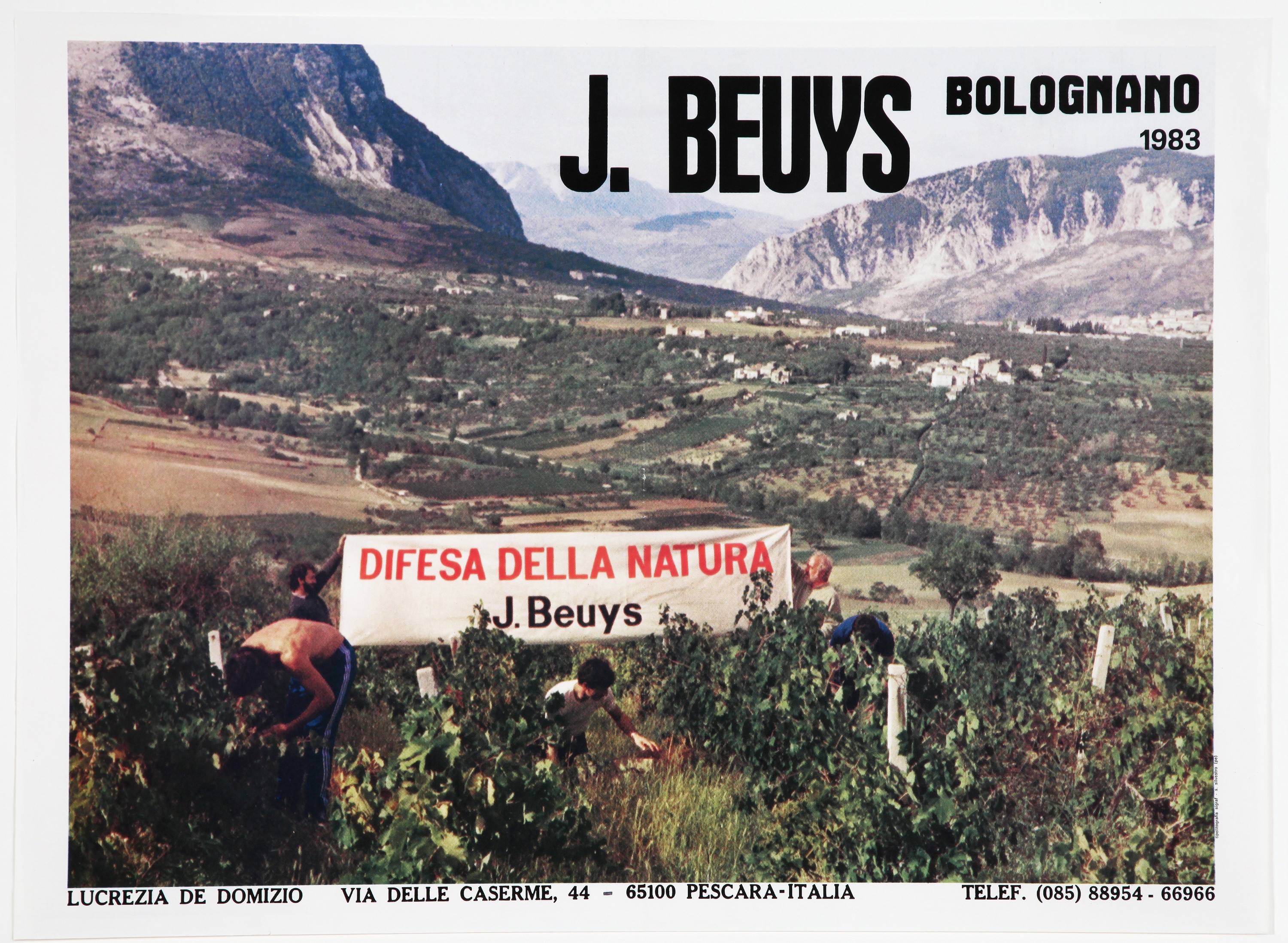
Anonym J. Beuys / Difesa della natura / Bolognano, 1983 Edizioni Lucrezia De Domizio, Pescara (IT) Für das Werk von Joseph Beuys: © VG Bild-Kunst, Bonn 2024
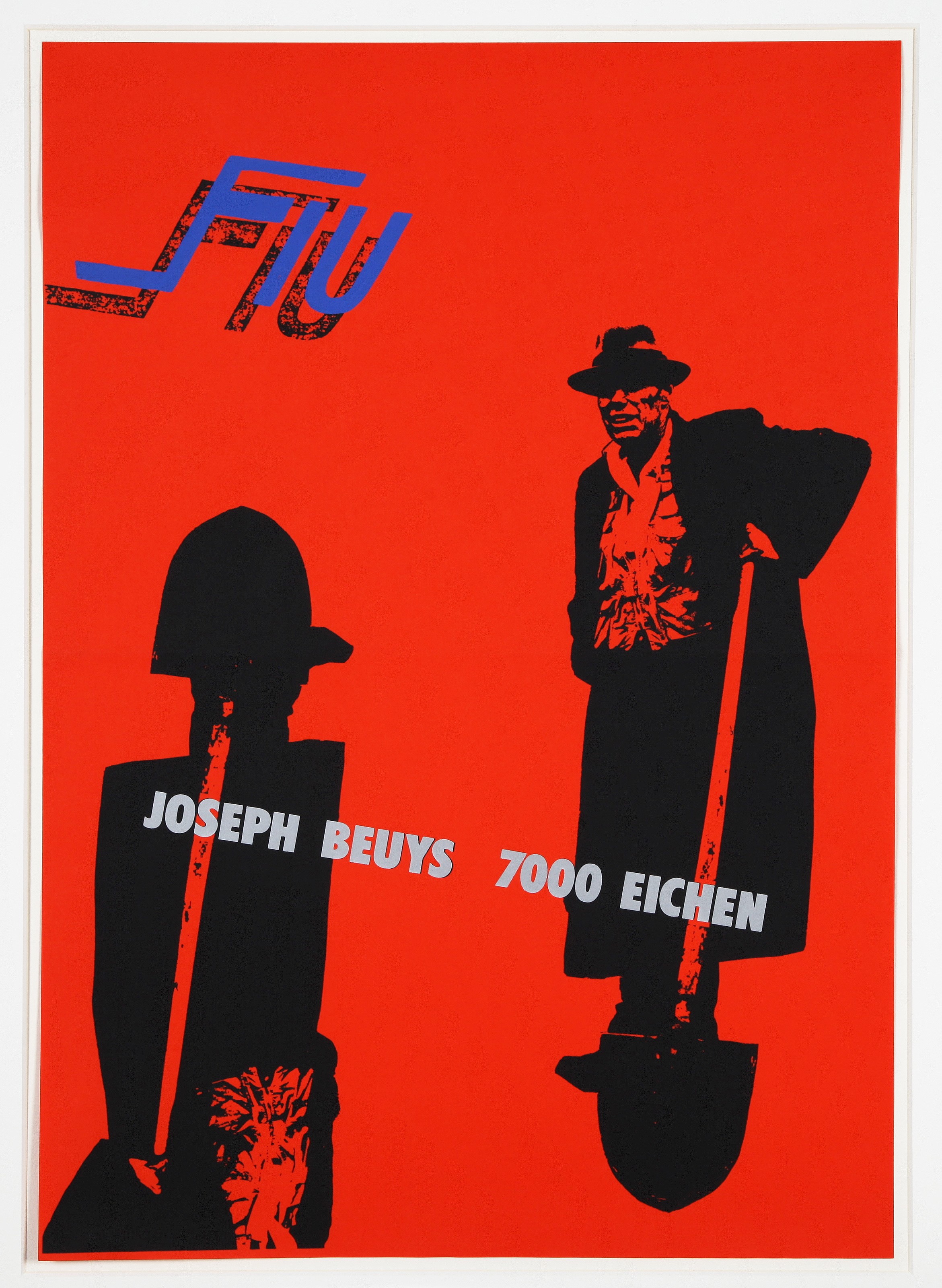
Johannes Stüttgen Joseph Beuys – 7000 Eichen, 1982 Für die Arbeit von Joseph Beuys: © VG Bild-Kunst, Bonn 2024 Foto: Willi Kraus
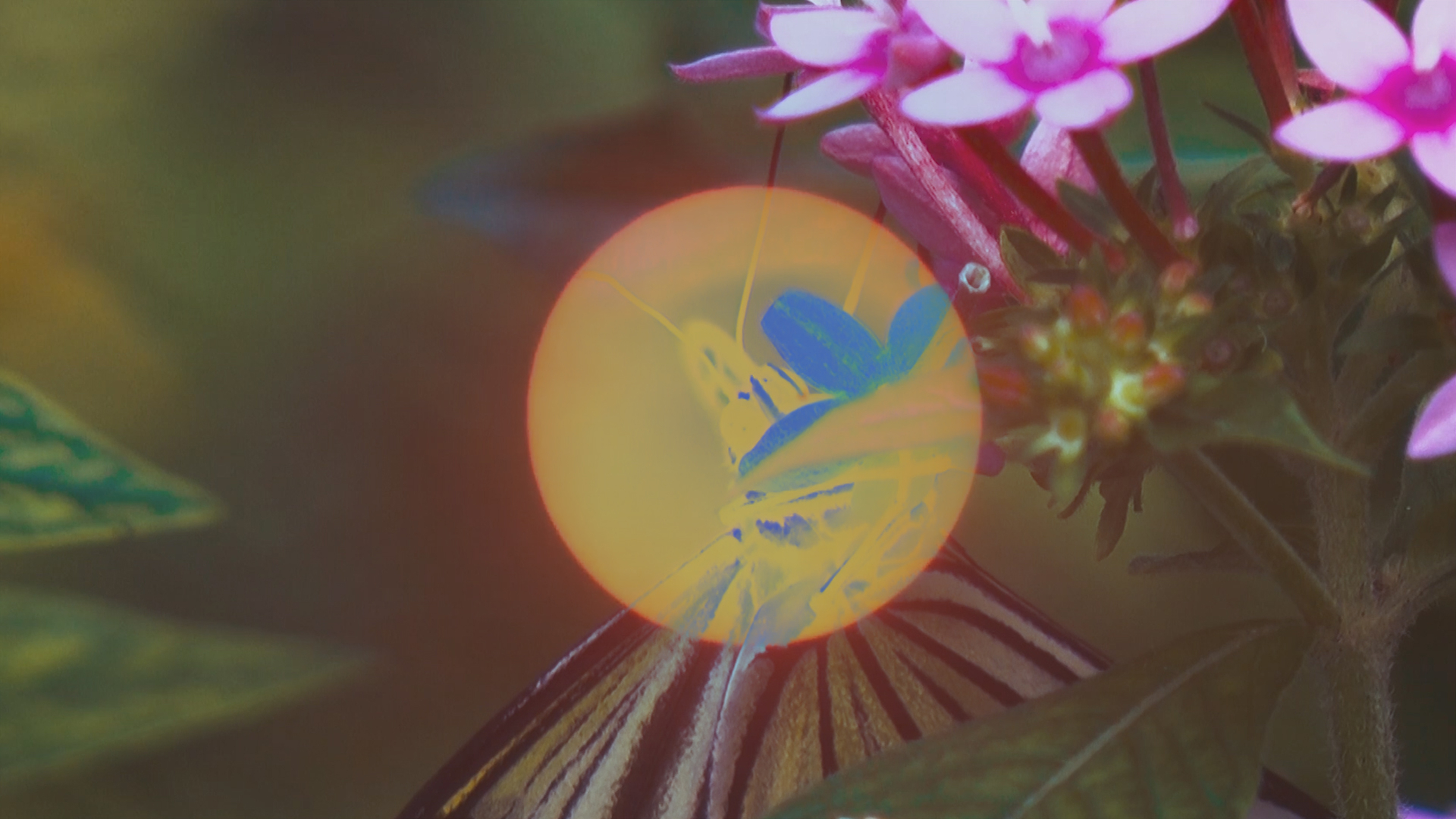
The Institute of Queer Ecology Still from Metamorphosis, episode 1, Grub Economics, 2020 Courtesy the Institute of Queer Ecology and DIS.

Joseph Beuys Vino F.I.U., 1981/1983 Edizioni Lucrezia De Domizio, Pescara (IT) © VG Bild-Kunst, Bonn 2024

Gunter Schmidt Pink-Panther-Protestaktion zu Joseph Beuys' 7000 Eichen auf der documenta 7, 1982 Wallpaper Courtesy Gunter Schmidt
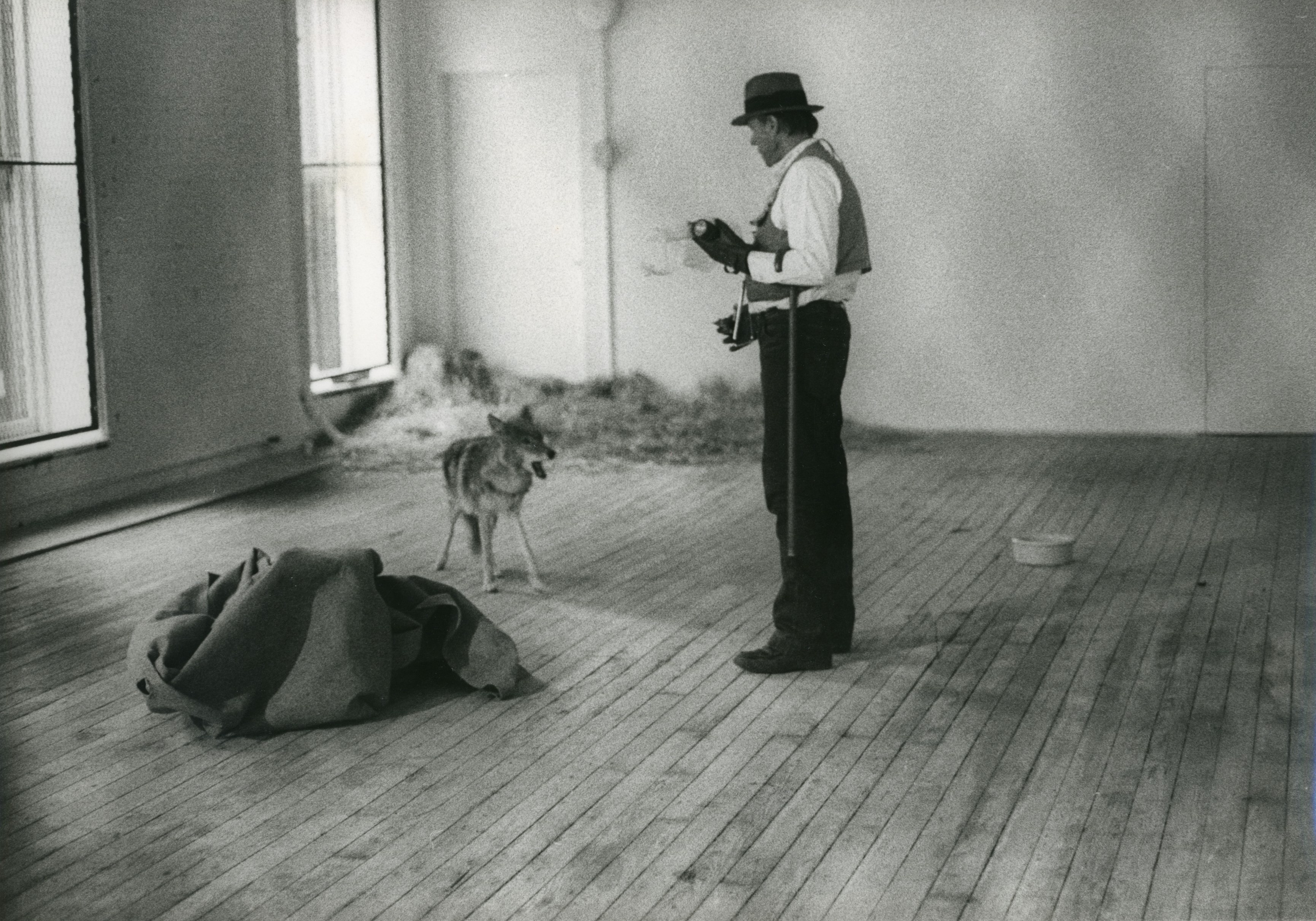
Joseph Beuys I like America and America likes Me Aktion in der René Block Gallery New York, 1974 © VG Bild-Kunst, Bonn 2024 Foto: anonym

Joseph Beuys vor dem Plakat „Kunst = Kapital“, Vernissage der Zeitschrift Capital Galerie Hans Mayer / Denise René, Düsseldorf, 1979 © VG Bild-Kunst, Bonn 2024 Foto: Ulrich Baatz

Joseph Beuys wie man dem toten Hasen die Bilder erklärt Aktion zur Eröffnung der Ausstellung "...irgend ein Strang..." Galerie Schmela, Düsseldorf, 26.11.1965 Foto: Ute Klophaus © bpk/Stiftung Museum Schloss Moyland/Ute Klophaus Für das Werk von Joseph Beuys: © VG Bild-Kunst, Bonn 2024

The Institute of Queer Ecology Still from Metamorphosis, episode 1, Grub Economics, 2020 Courtesy the Institute of Queer Ecology and DIS.

The Institute of Queer Ecology Still from Metamorphosis, episode 3, Emergence, 2020 Courtesy the Institute of Queer Ecology and DIS.
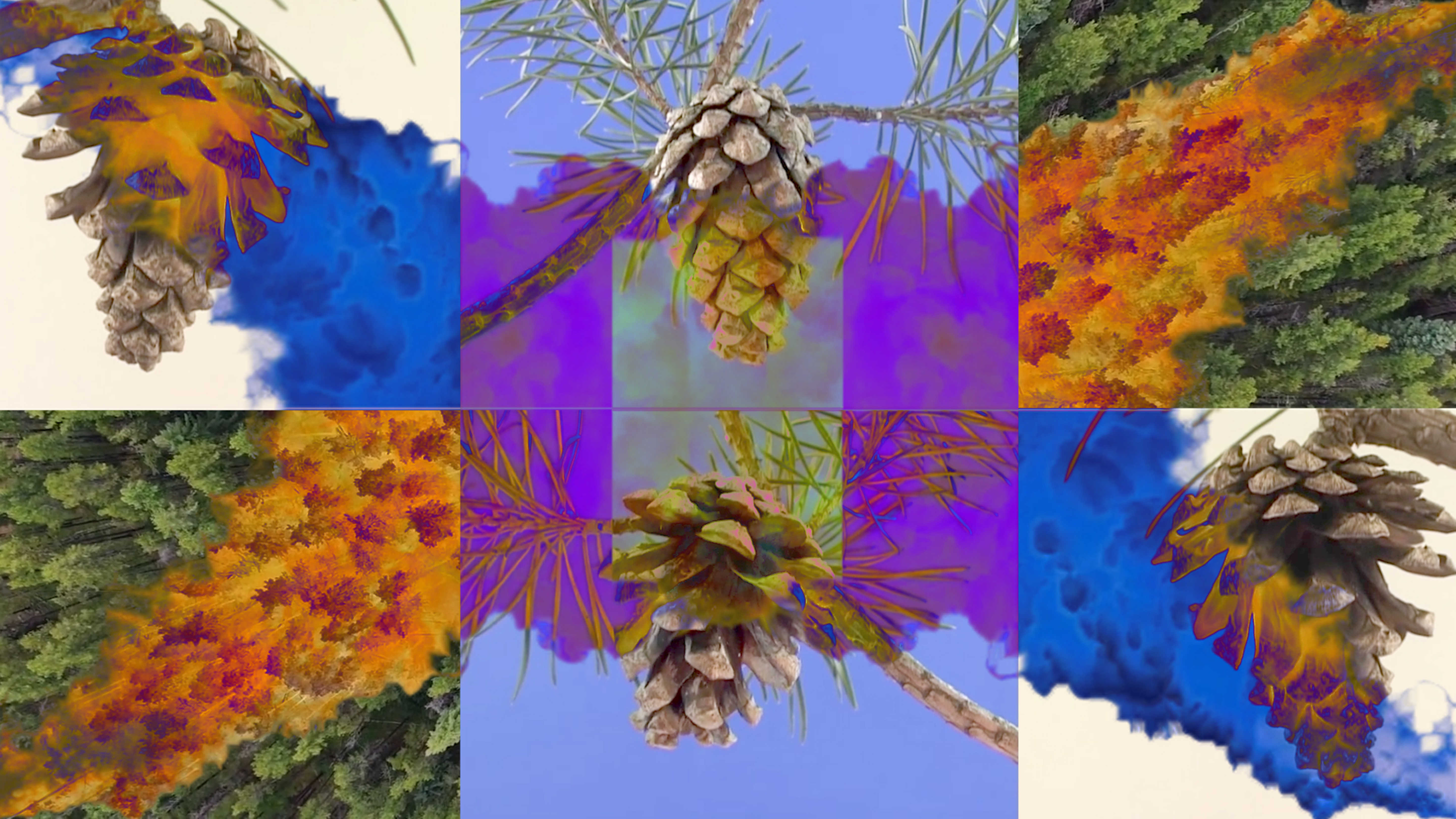
The Institute of Queer Ecology Still from Metamorphosis, prelude, Serotiny, 2020 Courtesy the Institute of Queer Ecology and DIS.
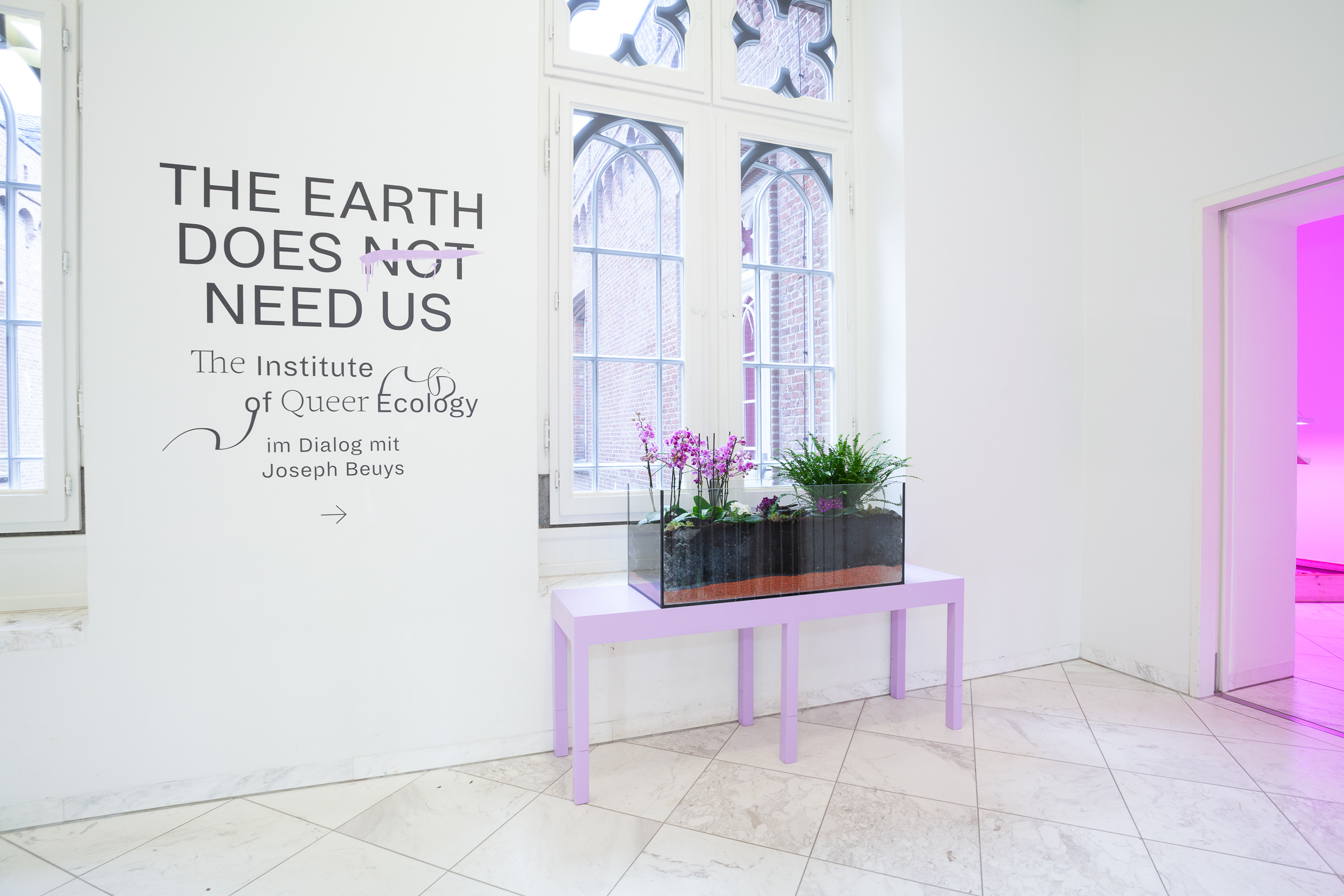
THE EARTH DOES NOT NEED US. The Institute of Queer Ecology im Dialog mit Joseph Beuys Ausstellungsansicht Foto: Stiftung Museum Schloss Moyland/Johannes Hüffmeier

THE EARTH DOES NOT NEED US. The Institute of Queer Ecology im Dialog mit Joseph Beuys Ausstellungsansicht Foto: Stiftung Museum Schloss Moyland/Johannes Hüffmeier
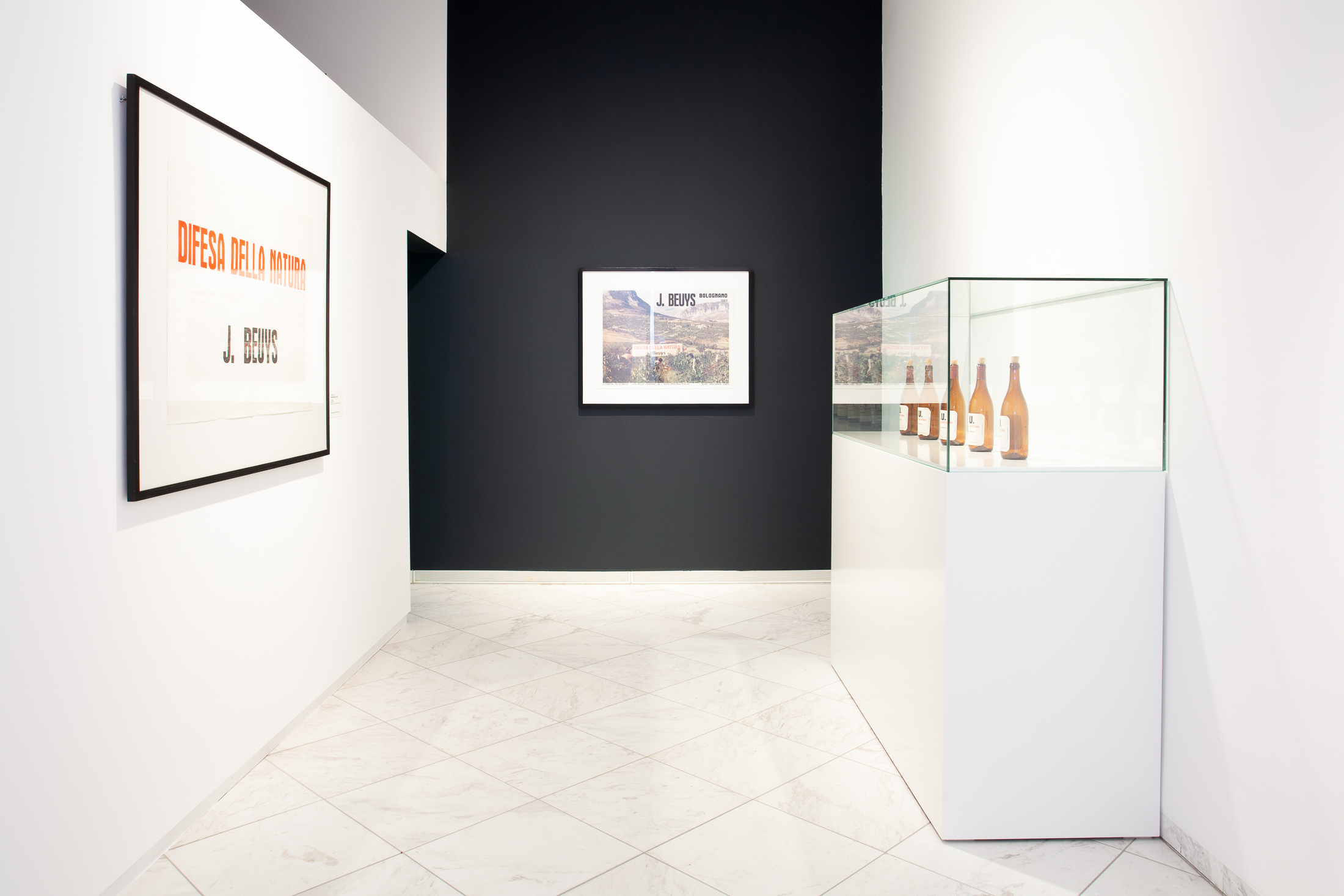
THE EARTH DOES NOT NEED US. The Institute of Queer Ecology im Dialog mit Joseph Beuys Ausstellungsansicht Foto: Stiftung Museum Schloss Moyland/Johannes Hüffmeier
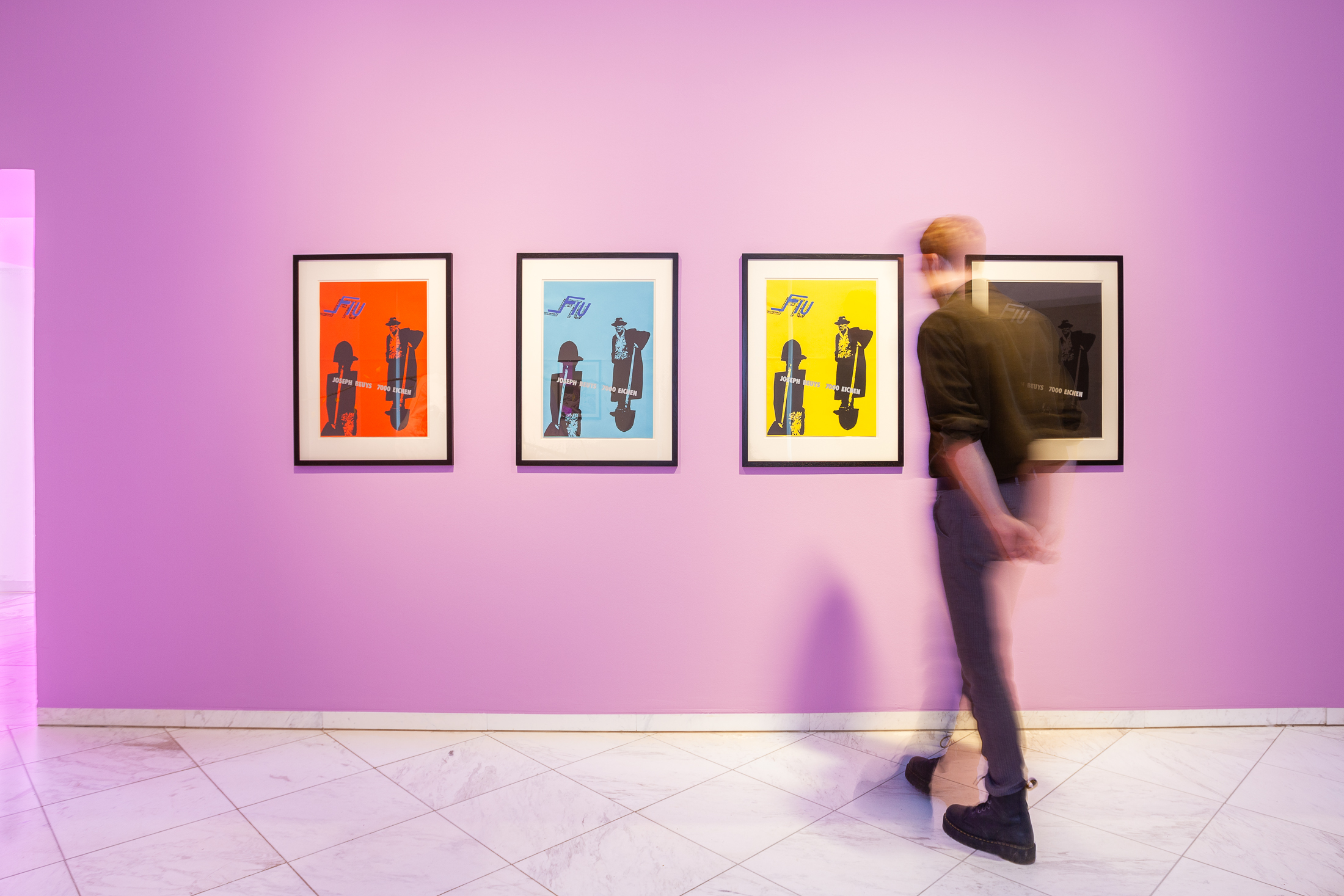
THE EARTH DOES NOT NEED US. The Institute of Queer Ecology im Dialog mit Joseph Beuys Ausstellungsansicht Foto: Stiftung Museum Schloss Moyland/Johannes Hüffmeier

THE EARTH DOES NOT NEED US. The Institute of Queer Ecology im Dialog mit Joseph Beuys Ausstellungsansicht Foto: Stiftung Museum Schloss Moyland/Johannes Hüffmeier
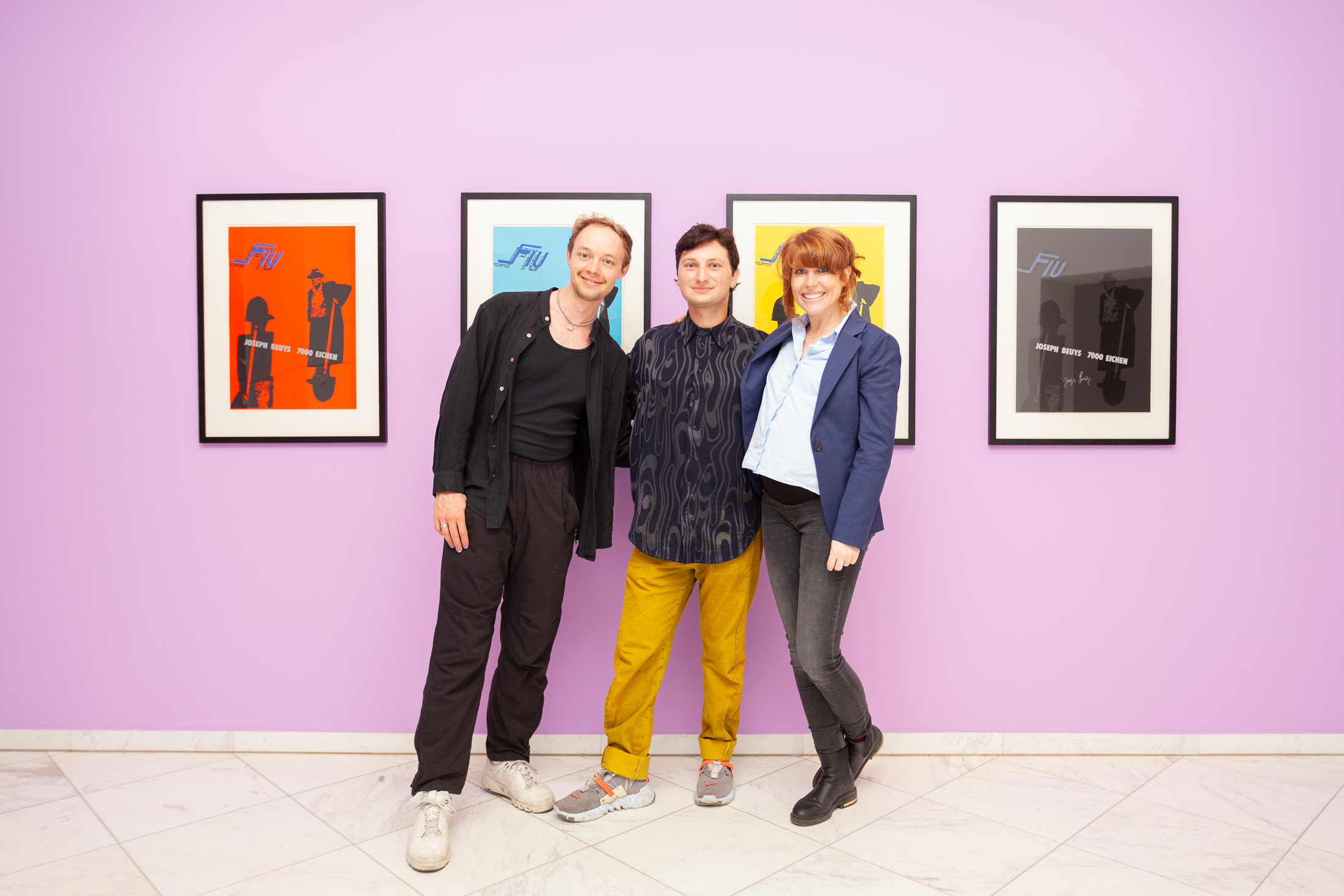
Nicolas Baird, Lee Pivnik und Judith Waldmann (von links nach rechts) Foto: Stiftung Museum Schloss Moyland/Johannes Hüffmeier


